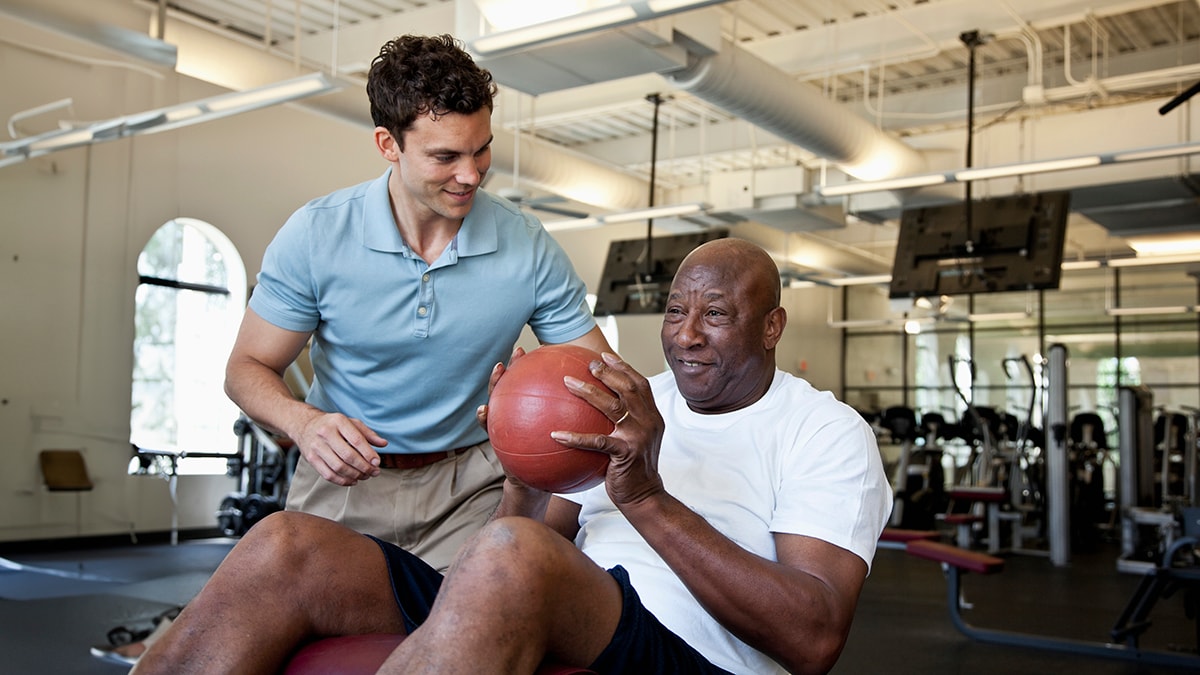At a glance
If you have a heart attack or other heart problem, cardiac rehabilitation is an important part of your recovery. Cardiac rehabilitation can both help a person recover from a heart problem and prevent future heart problems.
What cardiac rehabilitation is
About 800,000 people in the United States have a heart attack every year. About 1 in 4 of those people already had a heart attack.1 Cardiac rehabilitation not only can help a person recover from a heart problem but can also prevent future heart problems.
Cardiac rehabilitation is an important program for anyone recovering from a heart attack, heart failure, or other heart problem that required surgery or medical care.
Cardiac rehabilitation is a supervised program that includes:
- Physical activity.
- Education about healthy living, including how to eat healthy, take medicine as prescribed, and quit smoking.
- Counseling to find ways to relieve stress and improve mental health.
A team of people may help you through cardiac rehabilitation, including your health care team, exercise and nutrition specialists, physical therapists, and counselors.

Who needs cardiac rehabilitation?
Anyone who has had a heart problem, such as a heart attack, heart failure, or heart surgery, can benefit from cardiac rehabilitation. Studies have found that cardiac rehabilitation helps men and women of all ages with mild, moderate, or severe heart problems.2
However, some people are less likely to start or finish a cardiac rehabilitation program.
Studies show that women, especially minority women, are less likely than men to start or complete cardiac rehabilitation.34 This may be because doctors may be less likely to suggest cardiac rehabilitation to women.
Older adults. Older adults are also less likely to join a cardiac rehabilitation program following a heart problem.5 They may think they are unable to do the physical activity because of their age, or they may have other conditions that can make exercising harder, such as arthritis. The need to address other physical conditions makes cardiac rehabilitation especially useful for older adults, since it can improve strength and mobility to make daily tasks easier.25
How cardiac rehabilitation helps
Cardiac rehabilitation can have many health benefits in both the short and long term, including:
- Strengthening your heart and body after a heart attack.
- Relieving symptoms of heart problems, such as chest pain.
- Building healthier habits such as getting more physical activity, quitting smoking, and eating a heart-healthy diet.
- Reducing stress.
- Improving your mood. People are more likely to feel depressed after a heart attack. Cardiac rehabilitation can help prevent or lessen depression.6
- Increasing your energy and strength to make daily activities like carrying groceries and climbing stairs easier.
- Making you more likely to take your prescribed medicines that help lower your risk for future heart problems.6
- Preventing future illness and death from heart disease. Studies have found that cardiac rehabilitation decreases the chance that you will die in the 5 years following a heart attack or bypass surgery by about 35%.6
Where to get cardiac rehabilitation
Some programs are done in a hospital or rehabilitation center, and other programs can be done in your home. Cardiac rehabilitation may start while you are still in the hospital or right after you leave the hospital.
Cardiac rehabilitation programs usually last about 3 months but can range anywhere from 2 to 8 months.
Talk to your doctor about cardiac rehabilitation. Many insurance plans, including Medicaid and Medicare, cover it if you have a doctor's referral.
- Virani SS, Alonso A, Benjamin EJ, et al. Heart disease and stroke statistics—2020 update: a report from the American Heart Association. Circulation. 2020;141:e139-e596.
- Schopfer DW, Forman DE. Cardiac rehabilitation in older adults. Can J Cardiol. 2016;32(9):1088–1096.
- Supervía M, Medina-Inojosa JR, Yeung C, et al. Cardiac rehabilitation for women: A systematic review of barriers and solutions. Mayo Clin Proc. 2017;92(4):565–577.
- Oosenbrug E, Marinho RP, Zhang J, et al. Sex differences in cardiac rehabilitation adherence: A meta-analysis. Can J Cardiol. 2016;32:1316–1324.
- Schopfer DW, Forman DE. Cardiac rehabilitation in older adults. Can J Cardiol. 2016;32(9):1088–1096.
- Servey JT, Stephens M. Cardiac rehabilitation: Improving function and reducing risk. Am Fam Physician. 2016;94(1):37–43.
